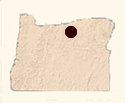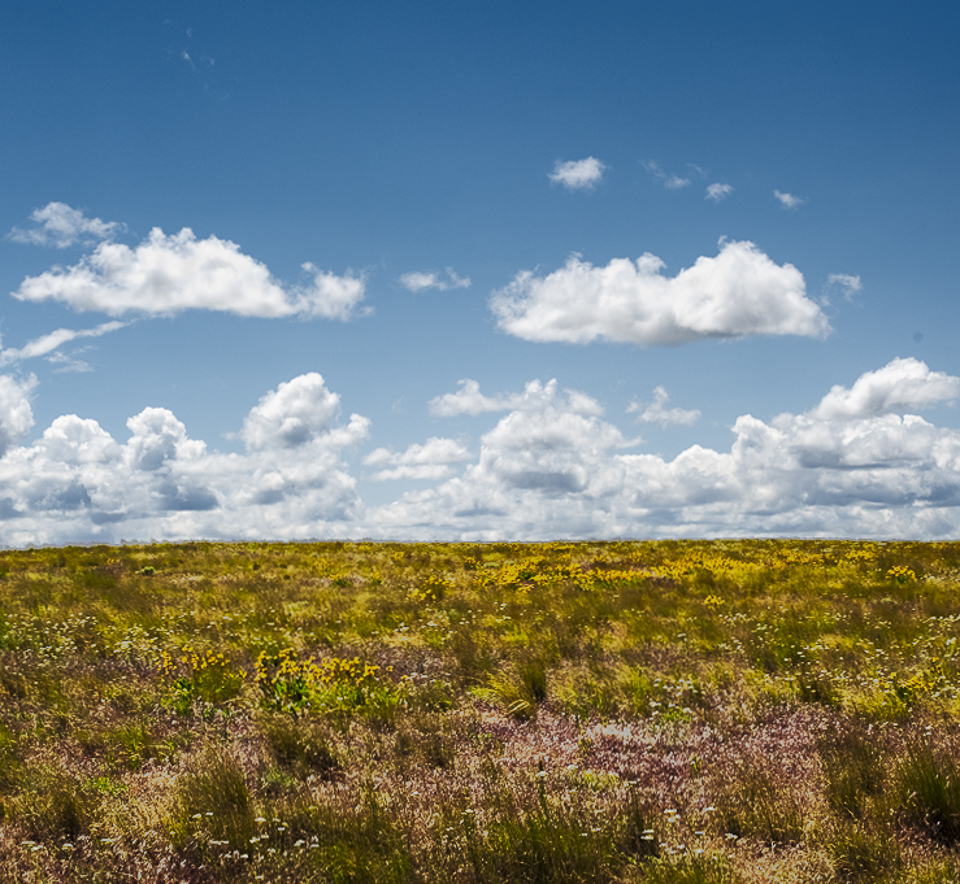Lansford Hastings sold promises. Infamous for the promise in his 1845 Emigrant's Guide to Oregon and California of a quicker route west and the resulting disaster for the Donner party, Hastings also promised virgin land in California and Oregon ripe for the farmer’s plow and seed. Hastings traveled from Walla Walla to Fort Vancouver along the north shore of the Columbia River while in the Oregon Territory. So his description of the rolling grassland south of the Columbia and its potential for wheat farming presented below is based primarily on hearsay and reports from the Hudson's Bay Company - to be taken with a grain of salt.
 Wheat is the principal grain grown in this section as yet, the greatest quantities of which are produced at the Wallammette valley, the Fualitine plains, and the farms of the Hudson's Bay Company, at Vancouver, Nisqually and the Cawlitz. The average crop, is about fifteen bushels to the acre, yet, I have no doubt, but that portion of this section, which lies south of the Columbia River, and which is susceptible of cultivation, may, with proper agricultural skill, be made to produce twenty-five or thirty bushels to the acre.
Wheat is the principal grain grown in this section as yet, the greatest quantities of which are produced at the Wallammette valley, the Fualitine plains, and the farms of the Hudson's Bay Company, at Vancouver, Nisqually and the Cawlitz. The average crop, is about fifteen bushels to the acre, yet, I have no doubt, but that portion of this section, which lies south of the Columbia River, and which is susceptible of cultivation, may, with proper agricultural skill, be made to produce twenty-five or thirty bushels to the acre.  The northern portion will never produce so abundantly, as the southern part, for, as has been before remarked, its soil is generally, much less fertile, and its climate much less adapted to the luxuriant production of any kind of grain or vegetables. Wherever wheat has been grown as yet, the first crop is found to be of very little value; so valueless in fact, that in many instances it is not harvested. I was informed by several respectable farmers, that from the first sowing, they could not, as a general thing, rely upon receiving more than the seed sown, and that, in many instances, even the seed sown, was not received. But a fact was also stated to me, by several respectable gentlemen, which clearly shows the peculiar adaptation of this country, to the growing of this species of grain, especially, after it is reduced to a proper state of cultivation. The fact alluded to is, that after having subdued the land properly, having sowed your wheat, and having harvested it, a spontaneous growth will spring up the succeeding year, and you will receive a very good crop without a second sowing.
The northern portion will never produce so abundantly, as the southern part, for, as has been before remarked, its soil is generally, much less fertile, and its climate much less adapted to the luxuriant production of any kind of grain or vegetables. Wherever wheat has been grown as yet, the first crop is found to be of very little value; so valueless in fact, that in many instances it is not harvested. I was informed by several respectable farmers, that from the first sowing, they could not, as a general thing, rely upon receiving more than the seed sown, and that, in many instances, even the seed sown, was not received. But a fact was also stated to me, by several respectable gentlemen, which clearly shows the peculiar adaptation of this country, to the growing of this species of grain, especially, after it is reduced to a proper state of cultivation. The fact alluded to is, that after having subdued the land properly, having sowed your wheat, and having harvested it, a spontaneous growth will spring up the succeeding year, and you will receive a very good crop without a second sowing.
Lansford Hastings, The Emigrant's Guide to Oregon and California, Cincinnati: George Comclin, 1845, p 46.